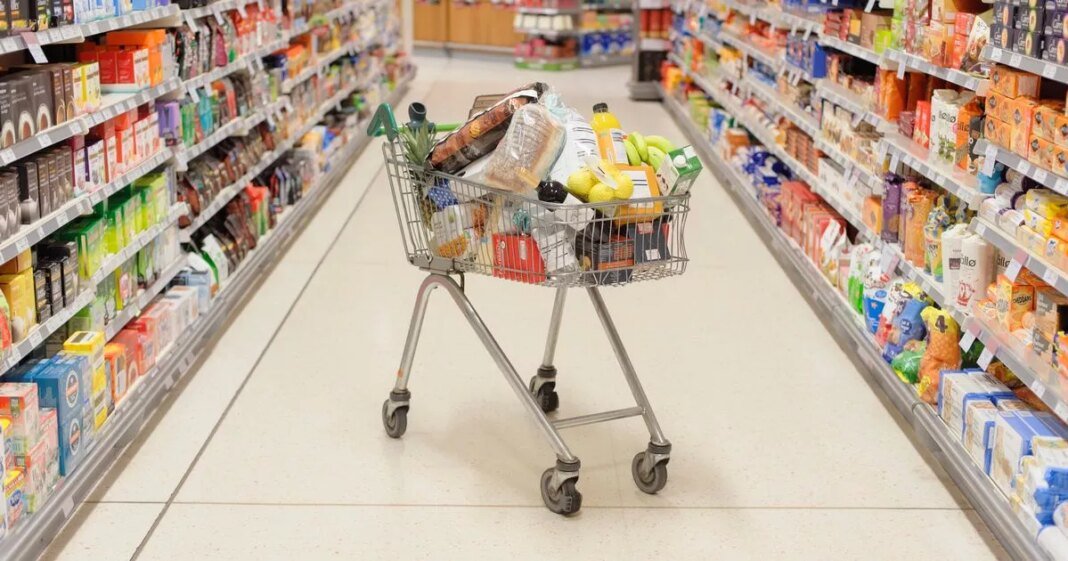Food prices have surged at the fastest rate in 18 months, dealing a blow to households already facing financial challenges. The latest data from the British Retail Consortium (BRC)-NIQ Shop Price Monitor indicates that food inflation rose to 4.2% this month, up from 4% in July, marking the highest level since February 2024.
Among the items experiencing price hikes are chocolate, butter, and eggs, contributing to the overall increase in fresh food inflation to 4.1% due to escalating dairy prices. In contrast, ambient food inflation slowed to 4.2% year-on-year, while shop price inflation as a whole rose to 0.9% in August, despite non-food products experiencing a deflation of 0.8%.
The uptick in food prices follows the Bank of England’s statement earlier this month attributing the acceleration in food prices to the higher National Insurance contributions by employers since April. The National Insurance rate for firms rose from 13.8% to 15%, while the threshold for employers to start paying National Insurance decreased from £9,100 annually to £5,000.
Retail leaders, including executives from major companies like Tesco, Sainsbury’s, and Boots, cautioned Chancellor Rachel Reeves against further tax increases in the upcoming Autumn Budget, expressing concerns that additional taxes could hinder efforts to enhance living standards in the UK. In a joint letter organized by the BRC, these industry figures predicted food and drink inflation could reach 6% by the end of the year.
Helen Dickinson, CEO of the BRC, highlighted the challenges faced by families due to rising food prices, particularly citing increases in staple items like butter and eggs driven by high demand, supply constraints, and rising labor expenses. She also noted that global cocoa prices have influenced the cost of chocolate due to poor harvests.
Retailers are working to mitigate price hikes for consumers, but the additional costs from last year’s budget adjustments have created a difficult environment for the industry. More than 60 retail CEOs recently urged the Chancellor to avoid further tax hikes on the retail sector this autumn to alleviate the financial strain on businesses.
Mike Watkins, head of retailer and business insight at NIQ, explained that the price increases were influenced by various factors such as global supply costs, seasonal food inflation linked to weather conditions, the conclusion of promotional activities related to recent events, and rising operational expenses. With households returning from summer vacations, many may need to reevaluate their budgets to accommodate rising living costs.

